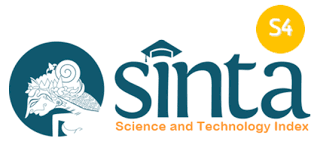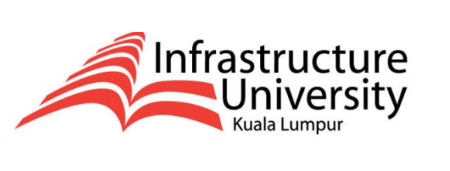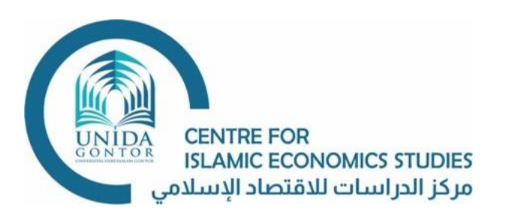Zakat Program for Post-Pandemic Economic Recovery: Qualitative Approach using Nvivo
DOI:
https://doi.org/10.21154/joipad.v2i2.4831Keywords:
Zakat, Covid-19, Economic Recovery, Nvivo 12 PlusAbstract
Abstract: Introduction/Main Objectives: This study aims to determine the development of research related to the practice of zakat a program for restoring the economy, where zakat is one of the Islamic financial instruments that can break the chain of poverty and build prosperity. Background Problems: The global economic crisis due to COVID-19 has caused concern for the world. Not only that, Covid-19 caused an increased number of mustahik because people have lost their jobs. Novelty: The zakat program can be used solution in post-pandemic economic recovery while maintaining environmental balance Research Methods: The method used qualitative using secondary data in the form of articles published in Dimensions period 1970-2022, then analyzed using Nvivo 12 Plus software. Finding/Results: The findings of this study indicate an increasing trend of research related to zakat as one of the financing instruments in Islamic economics. Of the 500 published articles, most stated the potential of zakat in the economy, both in economic growth, community welfare, and others. Conclusion: This research expects to help expand academic studies related to zakat and economic recovery to achieve sustainable development goals. Further research and how zakat can be a best practice program in restoring the economy is highly recommended.
Keywords: Zakat, Covid-19, Economic Recovery, Nvivo 12 PlusReferences
Al-Qardawi, Y. (1993). Fiqhuz Zakat. Litera AntarNusa.
Asfarina, M., Ascarya, & Beik, I. S. (2019). Classical And Contemporary Fiqh Approaches To Re-Estimating The Zakat Potential In Indonesia. Journal of Islamic Monetary Economics and Finance, 5(2), 387”“418.
Azamfirei, R. (2020). The 2019 Novel Coronavirus: A Crown Jewel of Pandemics? The Journal of Critical Care Medicine, 6(1), 3”“4.
Baskoro, B. https://doi. org/10. 46918/point. v2i2. 748D., & Karmanto, G. D. (2020). Intensi Masyarakat Dalam Menyalurkan Zakat, Infaq, Dan Shadaqah (Zis) Melalui Penggunaan Platform Crowdfunding. Point, 2(2), 95”“109. https://doi.org/10.46918/point.v2i2.748
BAZNAS. (2020). Channel Pembayaran.
Beik, I. S., & Arsyianti, L. D. (2015). Construction of CIBEST Model As Measurement of Poverty And Welfare Indices from Islamic Perspective. Jurnal Al-Iqtishad, 7(1).
Ezziti, B. (2020). Zakat as a Means of Social Welfare: Exploring a Recent Fatwa From The Moroccan Ê¿Ulamaʾ on The Permisibility of Paying Zakat in Advance to Help The Poor of The Covid-19. AZKA: International Journal of Zakat & Social Finance, 1(1), 94”“101.
Fitri, M. (2017). Pengelolaan Zakat Produktif sebagai Instrumen Peningkatan Kesejahteraan Umat Maltuf Fitri. Jurnal Ekonomi Islam, 8(1), 149”“173.
Hambari, Arif, A. A., & Zaim, M. A. (2020). The Role of Zakat Institution in Facing Covid-19 : A Case Study of the Federal Territory Islamic Council ( MAIWP ) of Malaysia. ISSN: 2655-6251.
Haris, C. (2021). Zakat As A Solution For Public Economic Recovery In The Era Of Covid 19. Tasharruf: Journal Economics and Business of Islam, 6(1), 1”“19.
Hoque, N., Khan, M. A., & Mohammad, K. D. (2015). Poverty Alleviation by Zakah In A Transitional Economy: Asmall Business Entrepreneurial Framework. Journal of Global Entrepreneurship Research, 5(7).
Iskandar, A., Possumah, B. T., & Aqbar, K. (2020). Peran Ekonomi dan Keuangan Sosial Islam Covid-19. SALAM: Jurnal Sosial & Budaya Syar-I, 7(7), 625”“638. https://doi.org/10.15408/sjsbs.v7i7.15544
Kadir, A., Hakim, M. R., Syam, F., & Karim, M. S. (2020). Penggunaan Dana Zakat pada Korban Covid-19 Perspektif Maqashid Syariah. Al-Tafaqquh: Journal of Islamic Law, 1(2), 107”“116.
Kasri, R. A., & Putri, N. I. S. (2018). Fundraising Strategies to Optimize Zakat Potential in Indonesia: An Exploratory Qualitative Study. Al- Iqtishad: Jurnal Ilmu Ekonomi Syariah, 10(1), 1”“24. https://doi.org/10.15408/aiq.v10i1 .6191
Muneeza, A., & Nadwi, S. (2019). The Potential of Application of Technology- Based Innovations for Zakat Administration in India. International Journal of Zakat, 9(2), 87”“100. https://doi.org/10.37706/ijaz.v4i2.191
N. Nurhidayat. (2020). Strategi Fundraising Zakat Pasca Pandemi Covid-19. SALAM: Jurnal Sosial Dan Budaya Syar-I, 7(8), 737”“748. https://doi.org/10.15408/sjsbs.v7i8.16553
Nasution. (2008). Indonesia Zakat and Development Report 2009.
Norvadewi, Zaroni, A. N., & Rahmah, F. (2021). Zakat Management In The Covid-19 Pandemic Era. EL DINAR: Jurnal Keuangan Dan Perbankan Syariah, 9(2), 165”“181.
Qudamah, I. (2007). Al-Mughni Terjemahan Amir Hamzah Cetakan Ketiga. Pustaka Azzam.
Rachman, M. A., & Salam, A. N. (2018). The Reinforcement of Zakat Management through Financial Technology Systems. International Journal of Zakat, 3(1), 57”“69.
Rizal, F., & Mukaromah, H. (2021). Filantropi Islam Solusi Atas Masalah Kemiskinan Akibat Pandemi Covid-19. Al-Manhaj: Jurnal Hukum Dan Pranata Sosial Islam, Vol.3, No.(P-ISSN : 2686-1607 E-ISSN : 2686-4819), 35”“66.
Rohim, A. N. (2019). Optimalisasi Penghimpunan Zakat Melalui Digital Fundraising. Al-Balagh: Jurnal Dakwah Dan Komunikasi, 4(1), 59”“90. https://doi.org/https://doi.org/10.22515/balagh.v4i1.1556
Sihaloho, E. D. (2020). Dampak Covid-19 Terhadap Perekonomian Indonesia (Issue April).
Sugiyono. (2008). Metode Penelitian Kuantitatif, Kualitatif dan R&D. Alfabeta.
Sulaeman, Majid, R., & Widiastuti, T. (2021). The Impact of Zakat on Socio-Economic Welfare before COVID-19 Pandemic in Indonesia : A Quantitative Study. International Journal of Zakat, 6(2), 75”“90.
Wahab, N. A., Rahim, A., & Rahman, A. (2012). Efficiency of Zakat Institutions In Malaysia : An Application of Data Envelopment Analysis. Journal of Economic Cooperation and Development, 33(1), 95”“112.
Wijaya, T. (2013). Metodelogi Penelitian Ekonomi dan Bisnis Teori dan Praktek. Graha Ilmu.










